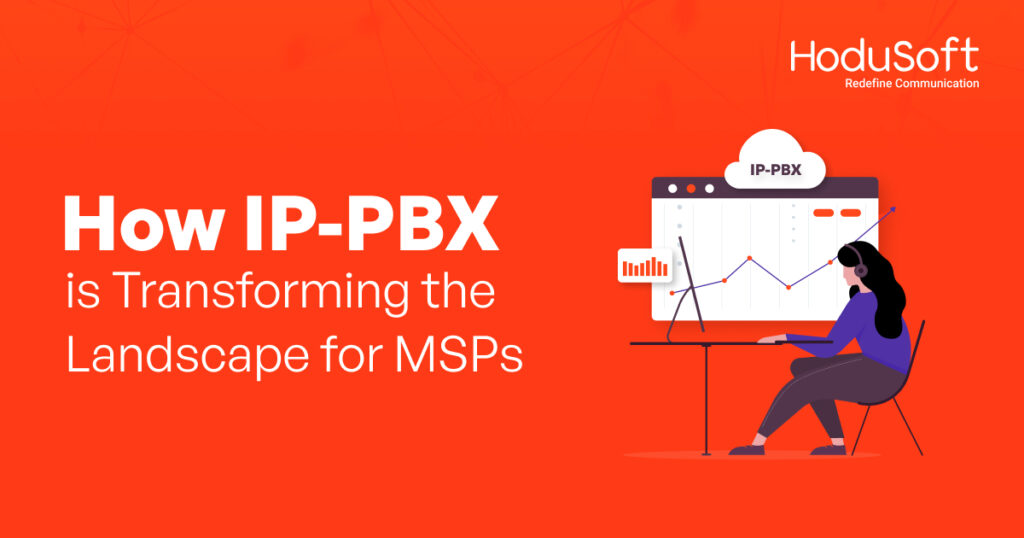Top Business Phone Systems Accelerate Banking Success
The banking industry is constantly evolving and adapting to the ever-changing technological landscape. One of the areas where this evolution is most evident is in the way banks communicate with their customers. With more and more people using their smartphones for everything from banking to shopping, it’s no surprise that the use of business phone systems in the banking industry is on the rise.
According to a recent study, the global market for mobile banking is expected to reach a staggering $ 1824 million by 2026, with a compound annual growth rate (CAGR) of over 12.2% during the forecast period. This trend highlights the increasing importance of investing in a robust and reliable business phone system for banks that want to stay relevant and ahead of the competition in today’s market.
The latest trends and innovations in business phone systems for the banking industry include features such as cloud-based solutions, AI-powered virtual assistants, and integration with other communication channels such as email and chat. The use of VoIP phone systems in the banking industry is a trend that is here to stay. Banks that invest in these systems can expect to see improved customer service, increased efficiency and productivity, and enhanced security, all of which are critical for maintaining a competitive edge in the current market scenario.
In this blog, we’ll take a closer look at the role of business phone systems for the banking industry, and explore the top 5 service providers in the market.
What is a Banking Phone System?
A banking phone system is a type of telecommunication system specifically designed for the banking industry. It enables financial institutions to communicate with their customers through various channels, such as voice, text, and video.
The system also allows banks to automate certain processes, such as account inquiries and transactions, making it more convenient for customers to access their account information and perform transactions without visiting a physical branch.
The role of a bank phone system in the banking business is multifaceted and includes the following key points:
- Improved customer service: A modern phone system allows banks to handle customer inquiries and complaints in a more efficient and timely manner, resulting in improved customer satisfaction.
- Automation of processes: It enables banks to automate specific processes, such as account inquiries and transactions, which can save time and reduce errors.
- Increased security: Banking business phone systems often come equipped with advanced security features, such as two-factor authentication, which can help protect customers’ personal and financial information.
- Cost savings: Implementing a banking phone system can help banks reduce costs by eliminating the need for a large number of tellers and other staff members.
- Better communication: It enables banks to communicate with their customers through multiple channels, such as voice, text, and video, which can improve the overall customer experience.
With robust advanced features like call bridging, least cost routing (LCR), real-time analytics & reporting, etc. banking experience for customers can be elevated significantly. Moreover, it adds up as an initiative to boost employee productivity by ensuring seamless communication and collaboration.
What to look for in a Business Phone System for Banking and Finance?
As more and more service providers invade the market, it has become a complex task for banks and financial institutions to choose a suitable phone system vendor. To simplify the selection process, here is a list of 10 things that one must keep in mind while selecting the best phone system for banking.
- Scalability: A VoIP phone system eases scalability for banking and finance businesses. It can accommodate a dynamic team size and a high volume of calls. This is important for banks and financial institutions that have a large customer base and need to handle a high volume of calls. Moreover, it saves time through the auto-provisioning feature so that employees can connect to their office network in just a few clicks.
- Security: In the banking and finance industry, security is a top priority. A banking phone system must ensure compliance with industry regulations. Moreover, it should have built-in security features such as encryption and authentication to protect sensitive financial information. Such security features help to prevent unauthorized access to sensitive information and ensure that all transactions are secure. Additionally, some service providers offer regular security audits to provide an extra layer of protection from cyber-attacks.
- Reliability: You must have noticed claims like ‘99.99% uptime’ by service providers. This is how important reliability is for banks and finance businesses. The phone system for banking must assure a high level of uptime and be able to handle unexpected spikes in call volume. It is a crucial factor for banks and financial institutions as they require constant communication with customers and need to ensure that their phone system is always available.
- Integration: Today, banks and finance businesses use multiple software to run their operations smoothly. The phone system should be able to integrate with other banking and finance systems such as customer relationship management (CRM) and enterprise resource planning (ERP) systems. This improves efficiency and streamlines communication between different departments and systems within the organization.
- Mobility: Just as customers expect 24×7 accessibility, today’s employees expect flexibility in terms of their working location. The phone system should be able to support mobile devices such as smartphones and tablets, to allow employees to work remotely or on the go. This allows employees to access and manage the phone system from anywhere, which is important for banks and financial institutions that need to be able to communicate with customers and employees from anywhere at any time.
- Advanced features: The phone system should have advanced features such as call recording, call routing, and conferencing. These features can improve customer service and support by allowing agents to record calls, route calls to the appropriate department, and hold conference calls with customers.
- Reporting and analytics: A banking phone system should have a range of reporting and analytics features to help managers understand and optimize call volume, customer interactions, and agent performance. This allows managers to track and analyze phone system usage and performance, which can help to improve customer service and support.
- Support: A dedicated support team is essential for providing assistance with setup, troubleshooting, and training. This ensures that any issues that arise with the phone system are quickly and efficiently resolved. You must look into reviews of existing customers to understand the responsiveness of the customer support services of the chosen service provider.
- Cost: The phone system should be cost-effective and provide a good return on investment, without compromising on quality or functionality. This ensures that the organization is getting the most value for its investment in the phone system. Always choose a service provider who ensures transparency in pricing and billing.
- Flexibility: The phone system should be customizable and should be able to adapt to the specific needs and requirements of the banking and finance organization. This allows the organization to tailor the phone system to their specific needs and requirements, which can improve the overall performance and effectiveness of the system.
A good system should be able to support the needs of your organization while being easy to manage and use for employees.
Read Also: Best PBX Phone System For Small Business
Top 5 Business Phone Systems for Banking
In finance, having access to versatile, reliable, and flexible communications tools is crucial. Business phone services have evolved from uncooperative, clunky desk phones to cloud-based services using Voice over Internet Protocol (VoIP) technology. This provides financial institutions with maximum flexibility and scalability. VoIP solutions include not only voice calls, but also video calling, conferencing, text messaging, live chat, and email. It facilitates the centralization of all business communications on one platform. Five of the best business phone service providers for financial institutions are:
#1. HoduSoft
HoduSoft is a business phone service provider that offers a comprehensive range of features tailored to meet the needs of financial institutions. The company’s services include voice, video, email, chat, and text messaging, along with standard VoIP telephony features like queuing and routing.
It also offers advanced call management, multi-tenant support, voicemail-to-email, CRM and payment gateway integration, and cutting-edge data analytics. Its proprietary software, HoduPBX, provides in-depth analytics and predictive analysis. This allows financial institutions to gain actionable insights into caller behavior and agent performance.
The company also provides team collaboration tools to support remote working. In all, the solutions offered by HoduSoft are ideal for all types of businesses including startups, small businesses to large organizations.
#2. Nextiva
Nextiva is a leading business phone system provider that offers the best internet telephony suite for financial institutions. Ideal for large enterprises, it was recently named the best business phone service by U.S. News. The company’s unified communications offering includes voice and video calling, messaging, and email, and is known for its reliability (99.999% uptime) and award-winning customer service.
Nextiva offers advanced call management, find-me-follow-me, voicemail-to-email, in-depth analytics, and cutting-edge conversational AI. Its proprietary software, the NextOS platform, provides in-depth analytics and predictive analysis powered by machine learning. This enables financial institutions to obtain valuable information about how their customers interact with their call center agents and how well their agents are performing.
The company has also recently released Cospace, a top-of-the-line team collaboration tool, which can be invaluable, especially with the persisting threat of the pandemic, and the definite possibility of a return to remote work.
#3. Vonage
Vonage is a solid choice in VoIP phone services for the banking and finance industry. The platform is flexible, and scalable, and offers omnichannel support for voice and video calling, video conferencing for up to 300 users, messaging, and live chat.
Additionally, it includes over 50 productivity-boosting tools such as virtual receptionists and social media integrations. It also integrates with a number of popular business platforms, including Office 365 and G Suite, Salesforce, HubSpot, Clio, and Microsoft Dynamics.
The features and functionalities offered by Vonage, makes it an ideal choice for small to medium-sized businesses.
#4. 8×8
8×8 is a business phone service provider that excels in global flexibility, making it an ideal choice for financial institutions that operate internationally. Large organizations can benefit greatly using the solutions offered by this company.
With toll-free numbers in 110 countries and local ones in 75, 8×8’s services encompass voice and video calling, HD video conferencing, screen sharing, and team messaging.
Additionally, it offers omnichannel routing and social media integrations. The service also integrates smoothly into an existing network of business tools. Besides, it is compatible with third-party platforms like Salesforce or Zendesk.
#5. Dialpad
Dialpad is an attractive solution for banks and financial institutions with an impressive feature set and a strong focus on artificial intelligence applications. The company provides voice, video, email, chat, and text messaging, as well as standard VoIP telephony features like queuing and routing.
Dialpad’s AI-powered features include automated note-taking during calls, call transcription, and real-time sales support. It also provides in-depth analytics to help businesses make informed decisions.
Dialpad is natively integrated with G Suite, Office 365, Salesforce, HubSpot, UberConference, and Slack, and additional integrations can be achieved through the use of Zapier. Dialpad can be an ideal choice for small to large enterprises.
All the above-mentioned names are popular business phone systems. However, it is always recommended to check the features and pricing of these phone systems before making a final decision.
Revolutionize your Banking operations with the right Business Phone System
In order to stay competitive, banks need to focus on providing a top-notch digital experience for their customers. One crucial aspect of this is upgrading to a modern phone system. By doing so, banks can better meet the evolving needs and preferences of their customers. In this blog post, we have compiled a list of the top 5 banking phone systems to assist in making an informed decision. However, if you are still in a dilemma, you can always reach out to the HoduSoft team for guidance. HoduSoft has designed HoduPBX, an IP PBX software that caters to the communication needs of every bank.



